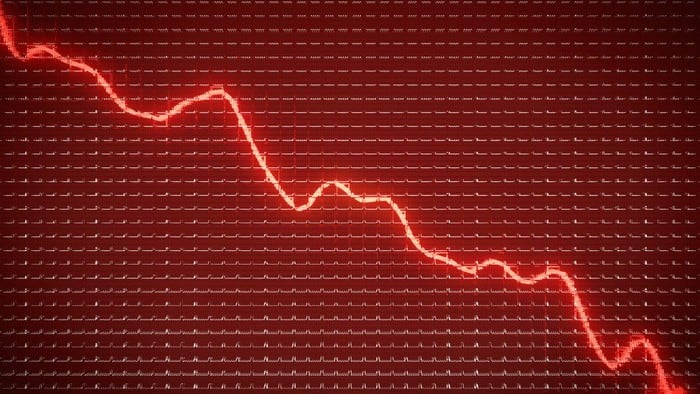Shares in coal freight operator Aurizon Holdings Ltd (ASX: AZJ) are in the red in late afternoon trade and are down 0.30% at $3.33.
Today's price levels signal a 9-year low for the company, having come off an all-time high of $5.91 in August 2019. Since that time, it has yet to make a long-term recovery on the chart and has traded downwards in a curvilinear fashion until today.
In more recent times, the Aurizon share price has been like a runaway freight train, with the company falling from a high of $3.89 on 21 October and trading flat ever since.
What's the go with the Aurizon share price lately?
Aurizon's most recent fall from grace has coincided with a large pullback in the price of coal that's been in situ since early October.
The price of the black rock has tumbled 42% from 10-year highs of US$269.50/tonne to now trade at US$157/tonne in just over 2 months.
A number of negative catalysts have weighed in on the coal markets lately and are keeping prices bottom heavy.
For instance, China's policies to curb domestic emissions and pollution have wreaked havoc on major raw materials like coal, iron ore and steel in 2021.
Investor concerns over the global economy's recovery amid the new Omicron COVID-19 variant have also weighed in poorly for coal producers, Trading Economics says.
Shares in Aurizon have fared slightly better than the underlying commodity, wiping only 14% in value across this time frame.
Given that the company's earnings are largely contingent on what the black rock is fetching, it is considered a price taker and as a result, its share price fluctuates with movements in the price of coal.
Alas, investors have been selling Aurizon shares alongside the fall in coal spot prices.
What else is weighing in?
The company also completed the acquisition of One Rail Australia from Macquarie Group Ltd (ASX: MQG). It expects the acquisition to deliver a positive sales impact and lend diversification benefits into new markets.
Aurizon intends to divest One Rail's NSW and QLD rail businesses in order to derive more value from the $2.35 billion purchase.
Although the deal beefs up Aurizon's operations by a considerable amount, not all those familiar with the company are as optimistic.
The team at UBS recently re-rated the company to neutral from a buy and applied a 33% downward revision to its price targets on the share.
UBS now values Aurizon at $3.50 per share, a figure in which the company flew underneath today amid the downward momentum of late.
The team at RBC Capital market agree, and also rate the company to underperform, with a slightly more bearish target of $3.30 on the Aurizon share price.
In view of this, sentiment appears to be low on the company's shares at the current point in time. Investors don't appear interested in opening long positions either, as today's volume is just 35% of Aurizon's 4-week average trading volume of 7,478,874 shares.
Aurizon share price summary
In the past 12 months, the Aurizon share price has tumbled more than 21% after sliding a further 15% this year to date.
During the previous month of trading, Aurizon shares have slipped less than 1% in the red and are also down almost 3% in the past week.
Suffice to say, it's been a difficult time for Aurizon shareholders over the last year.








